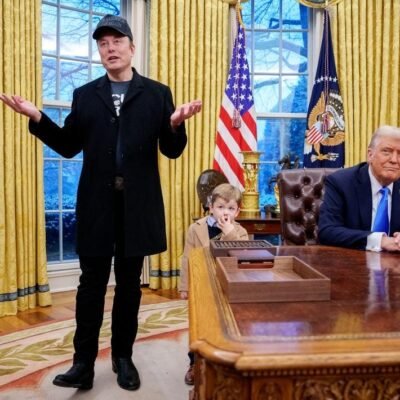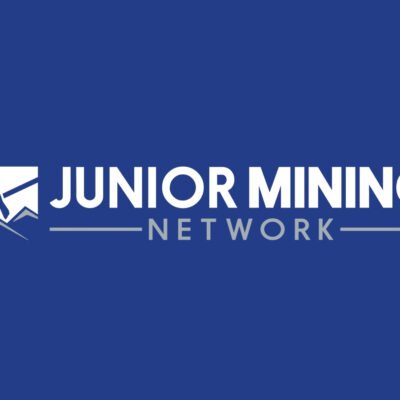On April 2, as you may have heard, US President Donald Trump announced sweeping, large tariffs on most US imports.
For global equity investors like me, who have had between half and two-thirds of their portfolios in US-listed companies for the past 25 years, this marked a turning point for how we think about portfolio construction.
While I could understand the politics of trying to help those left behind by globalisation, the economics made (and makes) no sense.
Our portfolio planning for this year now needs to incorporate: high likelihood of US recession, especially with falling consumer confidence, a lower US dollar, and future capital being invested for lower returns as plant (equipment) is brought back to the US.
Shareholders have profited greatly from the growth in American businesses over the past few decades, but many of these large companies have benefited significantly from a low tariff, globalised world. They may not seem so exceptionally profitable without one.
As US equities make up nearly 70 per cent of the global equity index, when investors reduce their exposure, a huge amount of money is left looking for a home.
Watching the currencies that seem strong against the dollar, investors are moving into euros and yen.
In Japan, there is a broad choice of companies on very modest valuations compared with US equities.
Furthermore, there are many stocks that can cope well with tariffs as they make products few in the world can match – from Sony making PlayStations, to Shin Etsu making the world’s finest silicon wafers. On the other hand, it is hard to think of a country that has benefited more from open export markets.
Effect on Europe
Europe also posses a good range of companies that can cope with US tariffs. Some of the largest listed companies have little exposure to the US, such as the telecom stocks.
Many leading European companies such as Louis Vuitton have more sensitivity to a recovery in Chinese consumer spending than US mid-market consumer confidence.

‘Is it now Europe’s turn to become great again?’
However, a US recession would doubtless dampen further any European growth prospects, and these were never high.
Between rising social security costs, dubious environmental spending and now sharply higher defence spending, all EU governments are hamstrung.
The German government laying aside their financing rules is very helpful, but even here any growth stimulus arising may take a few years to come through to the wider economy.
Lastly, despite the crisis caused by Trump’s presidency, old quibbles between EU states seem to continue and a more unified approach, even to defence, seems slow to emerge as politicians posture to please local electorates.
How is the UK faring?
The UK has many of these issues, but can stand aside from some.
The UK defence industry, while not what it was, stands above most EU countries and this seems to be leading to a broad and welcome softening of post-Brexit trade positions.
In the funds at Goshawk, Rolls-Royce is our largest UK holding, both for the commercial revival the new management have achieved, the potential for small nuclear reactors, potential in engines for both the power and aerospace sectors and potential for its defence business.
Our other large holding is Unilever. For many years its management team has been slowly reducing its historic map of supplying goods for each company locally – ie soap for India made in India, for America made in America. This lack of globalisation may prove an advantage in a higher tariff world.

Can defence investment really be considered ESG?
At least, the gap between the operating margins at Unilever and the operating margins at, say, Procter & Gamble may narrow.
As ever, the range of investment opportunities in the UK is not large. The UK economy was in a tight spot before the Trump tariffs and risks of a slowdown remain. This makes us cautious of banks and consumer cyclicals.
Mining stocks are unlikely to have a strong period until growth in large economies such as China improves – that may be a prospect for two or three years out, rather than this year. The oil price fall has already hit the large oil stock share prices, but prospects here are likely to rely on the geopolitics of Iran and Ukraine – and on those issues your guess is as good as mine.
The pharmaceutical sector is also well represented in the UK through both AstraZeneca and GSK.
Unfortunately both companies have significant sales into the US and the tariff regime for drugs has yet to be explained. It seems bizarre that the US would raise the price of drugs currently needed by US citizens that could not be substituted for a locally manufactured equivalent, but such puzzles are not uncommon dealing with tariff policies that may have been announced without much detailed work.

‘Trump is positioning for power in a rewired world’
Lastly, if you had asked a range of global equity managers for a list of stocks that have a long history of resilience and that can cope well in challenging times like these, many would have put high up that list Tesco and Bunzl.
However, both companies have in the past few weeks seen sharp share price falls after expressing concerns about current trading – and the trading conditions that led to this caution started months before Trump’s tariff announcement.
As we have reduced our exposure to US equities – now closer to 50 per cent than 65 per cent last year – we have more money in Europe, the UK as well as Asia.
However, given the tough and deteriorating economic outlook, we are selecting investments in these markets based on the uniqueness of their products and the barriers to entry in their industries.
If you want Rolls-Royce engine parts or Häagen-Dazs ice cream there is only one place to get it, and if your local politician has added a tariff to that price, ask him why.
Simon Edelsten runs global equity portfolios at Goshawk Asset Management











